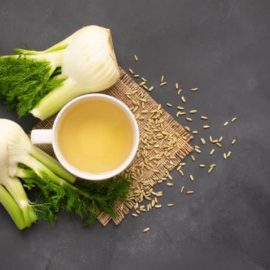The advent of social media and ethically-oriented consumers has put a new strain on beauty brands. While actions such as the cancel culture can be seen as menaces, there’s also an opportunity for brands to build new relations with clients built on trust and transparency. But how to start building a sustainable, ethical narrative through a beauty catalog? An extract targeting sebum secretion and based on natural pomegranate can have the answer.
Content
Cancel culture, young consumers and the BPC market
The cancel culture trend is defined as the practice of withdrawing support from a public personality or a brand after they perform actions that are perceived as unethical. It shares characteristics with boycotting, although the cancel culture is typically performed on the internet. In fact, this trend is especially relevant amongst generation Z and young adults.
While cancel culture is often seen in a negative light, what lies behind is a desire for consumers in these age groups to live a greener and more ethical life, putting equality and the environment at the front. This new perspective is influencing their perception of beauty brands and their expectations for them.
As a result, BPC brands are awakening to this new context and trying to meet consumer demands through a number of actions:
- Improve trust with transparency. The cancel culture showcases how consumers are developing a critical and more informed view of brands, holding them accountable for their actions. Ethics and sustainability are seen as holistic and “green-washing” initiatives criticized and ostracized. Brands must thus be transparent about ingredient sourcing and ingredient traceability. This can be done through various actions such as including traceable ID numbers for ingredient details, supplying testing results for their products, sharing supplier lists and obtaining product certifications.
- The inclusion of “hero ingredients”, which appeal to all skin types (including sensitive skin) in order to soothe, heal and repair and thus connect with the inclusivity narrative.
- Combine nature and science: while recent years saw science pushed aside in favour of “natural” claims, the pandemic has reframed science and built a new, trustworthy narrative around scientific research. This is an opportunity to avoid the “green-washing” claims that often are vilified by the cancel culture: through scientific research, brands can prove the objective benefits of their products and their sustainability claims. This focus on science also attracts research-driven consumers, which are often linked to cancel culture and its desire for transparency. In such a context, biocosmetics, Artificial Intelligence, sustainable cosmetics and lab-grown natural ingredients are the current brand differentiators.
- Include safe ingredients and ingredients perceived as familiar. In their search for knowledge about ingredients, a new consumer trend involves turning to food ingredients. The most popular among these are fruit and vegetable extracts and tea, according to Global Data Consumer Survey Q3 2020.
This results in at least two movements: it’s viable for brands to use well-known natural ingredients to develop beauty and personal care products (such as hydrolyzed wheat for hair care); also, companies will also need to work on educating consumers about the natural ingredients they use and the benefits they bring about.
- Work on developing products that are really “free from…”. This will appeal to consumers that have been proven by the Natural Marketing Institute 2020 to prefer “fragance-free” products, products that present the National Sanitation Foundation seal, “no parabens” or “no phthalates” products.
At the same time, it’s necessary to verify these claims through certifications. For instance, a number of eco certifications such as the EVE-VEGAN certification and the V-LABEL certification provide support for “not tested on animals” claims.
Addressing cancel culture: how an antisebum secretion extract can help building trust
The demographic group most prone to inhabit the cancel culture also shares a common skin issue: a remedy for acne and sebum oversecretion represent their most sought-after treatment. Following their ethics-oriented consumer mindset, this treatment must, at the same time, be effective, safe and natural.
Provital’s pomegranate extract is an example of such a treatment. This natural-origin, paraben free extract which targets sebum regulation provides an opportunity for brands to meet this generations’ needs and build a relationship of trust with them, while also starting to build a beauty catalog that caters to these new sensibilities.
This sebum regulation extract builds up from the pomegranate natural benefits: it’s rich in vitamins A, B and C, as well as in potassium, phosphorus, magnesium, calcium and sodium.
Asides from its sebum secretion regulation properties, the ingredient presents many other benefits, including:
- Anti-inflammatory
- Tanning
- Antioxidant
- Hair/skin repairing
- Hair color protection
- Protection against hair loss
- Anti-dandruff.
All in all, the pomegranate extract is very useful for cosmetic products with an astringent and regulatory activity of sebum on skin and hair.
Besides, this this sebum secretion extract appeals to research-driven consumers, as it relies on scientific research while also having been verified by a number of certifications including China compliance, Vegan compliance, Halal certificate, ISO 16128-Natural Origin (%) 99.6% and Cosmos Compliance.
Through adding such actives to their beauty catalog, brands encourage a new narrative towards transparency and encourage a relationship of mutual understanding and trust with consumers.
No comments yet
There are no comments on this post yet.





Leave a comment